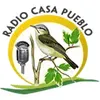Community news Live Radio Stations
Radio Stations
- Big Cabbage Radio

- Contacto (Chalco) - 98.9 FM - XHCHAL-FM - Comunicaciones en Contacto, Cultura y Bienestar Social, AC - Chalco, EM

- Contacto (Chalco) - 98.9 FM - XHCHAL-FM - Comunicaciones en Contacto, Cultura y Bienestar Social, AC - Chalco, Estado de México

- En Neza Radio (Nezahualcóyotl) - 97.3 FM - XHNEZ-FM - Voces Urbanas, Movimiento Alternativo de Información Social - Nezahualcóyotl, EM

- Felixstowe Radio

- KPUP-LP 100.5 Patagonia, AZ

- La Voz de los Mayas (Peto) - 105.5 FM / 730 AM - XHPET-FM / XEPET-AM - INPI (Instituto Nacional de los Pueblos Indígenas) - Peto, Yucatán

- Radio Activa (Salina Cruz) - 89.1 FM - XHIKE-FM - Ike Siidi Viaa, A.C. - Salina Cruz, OA

- Radio Activa (Salina Cruz) - 89.1 FM - XHIKE-FM - Ike Siidi Viaa, AC - Salina Cruz, OA

- Radio Casa Pueblo

- Riverside Radio

Choose a Genre
Community news radio stations are essential pillars in local broadcasting, offering residents a trusted source of timely and relevant information. These stations focus exclusively on the news and events that shape the everyday lives of people within specific geographic areas—whether that be a small town or a bustling city.
By covering a broad range of topics such as local politics, education, health, and the arts, community news radio ensures that listeners stay informed about issues that directly affect their lives. Programming often includes live interviews with local leaders, experts, and activists, as well as segments highlighting upcoming community events and ongoing initiatives.
Beyond news coverage, many community news stations enrich their schedules with music, public affairs programs, and other content that celebrates the unique culture and interests of their audiences. This diversity helps foster a strong sense of identity and belonging among listeners.
Crucially, community news radio stations promote civic engagement by providing a platform where local voices can be heard, and important discussions can take place. They enable communities to debate issues, share solutions, and collaborate on common goals, strengthening local democracy.
Many of these stations operate as nonprofit entities, relying heavily on listener support and underwriting from local businesses and organizations. This community-centered funding model ensures that programming stays aligned with the real needs and interests of the people they serve.
In sum, community news radio stations are vital hubs for keeping residents connected, informed, and actively involved in their communities, making them indispensable in today’s media landscape.
By covering a broad range of topics such as local politics, education, health, and the arts, community news radio ensures that listeners stay informed about issues that directly affect their lives. Programming often includes live interviews with local leaders, experts, and activists, as well as segments highlighting upcoming community events and ongoing initiatives.
Beyond news coverage, many community news stations enrich their schedules with music, public affairs programs, and other content that celebrates the unique culture and interests of their audiences. This diversity helps foster a strong sense of identity and belonging among listeners.
Crucially, community news radio stations promote civic engagement by providing a platform where local voices can be heard, and important discussions can take place. They enable communities to debate issues, share solutions, and collaborate on common goals, strengthening local democracy.
Many of these stations operate as nonprofit entities, relying heavily on listener support and underwriting from local businesses and organizations. This community-centered funding model ensures that programming stays aligned with the real needs and interests of the people they serve.
In sum, community news radio stations are vital hubs for keeping residents connected, informed, and actively involved in their communities, making them indispensable in today’s media landscape.